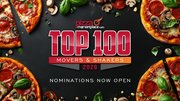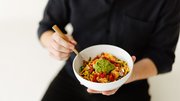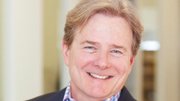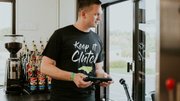Article
Coffee wars
The market for specialty coffee heats up.

May 14, 2007
When the Specialty Coffee Association of America recognized a retailer this year with its latest Golden Cup Award for excellence in brewing coffee, the honor didn't go to a coffeehouse chain like Starbucks or Caribou Coffee. Instead, the award went to a gas station/convenience store located in Oklahoma City.
Star Fuel's 53-unit All Star Stores received the award after submitting a sample of the company's brewed coffee for laboratory analysis by the SCAA. The association analyzed the samples to ascertain the amount of minerals in the water, as well as the ratio of water to coffee.
"There are some convenience store operators who believe that all customers want is a 'good cup of coffee' at a cheap price," said Alan Wilkerson, Star Fuel's chief operating officer. "We'll let them have that piece of the market, and we'll continue on our course of capturing the discriminating customer that wants that really good coffee."
In order to solidify its place in the Oklahoma City coffee market, Star Fuel held "coffee college" sessions for all of its workers. The sessions covered everything from how coffee is produced to its proper brewing and storing.
Inspired by the success and tremendous growth of the Starbucks chain, and emboldened by the hints of a chink in the coffee giant's armor, restaurants ranging from McDonald's to white tablecloth establishments are looking to grab a share of the specialty coffee market as a way to boost profits.
A memo written by Starbucks chairman Howard Schultz earlier this year lamented the commoditization of the Starbucks brand and warned of the looming threat from competitors. The company's stores had lost their soul and no longer reflected the feeling of a neighborhood coffee house, he said.
"In fact, I am not sure people today even know we are roasting coffee," Schultz said in the memo. "While the current state of affairs for the most part is self-induced, that has lead to competitors of all kinds, small and large coffee companies, fast food operators, and mom and pops, to position themselves in a way that creates awareness, trial and loyalty of people who previously have been Starbucks customers. This must be eradicated."
Market growth
The SCAA, a coffee trade association with more than 3,000 member companies in over 40 countries, defines "specialty coffee" as the highest-quality green coffee beans roasted to their greatest flavor potential, then properly brewed to well-established standards. The brewing method, such as the use of an espresso machine, isn't part of the definition.
According to the association, the U.S. specialty coffee market has grown from an $8.3 billion business in 2001 to a $12.3 billion business in 2006.
Along with the size of the specialty coffee market, the number of specialty coffee drinkers in the United States is growing as well. According to the National Coffee Association Annual Drinking Trends Study, the percentage of the U.S. adult population who are daily consumers of specialty coffee has grown from 13 percent in 2002 to 16 percent in 2006.
| ||||||||||||||||||
And the number of occasional consumers of specialty coffee grew from 59 percent to 63 percent of the U.S. adult population during the same period.
A number of fast-casual chains are touting their specialty coffee offerings as a way to boost traffic in their restaurants. In February, Noah's Bagels, a subsidiary of New World Restaurant Group Inc., introduced Tribeca Blend, the brand's first certified organic and fair trade coffee in all of its locations.
The brand was created in conjunction with Coffee Bean International, the roaster of specialty coffees for Noah's.
Specialty coffee marketer Peet's Coffee & Tea Inc. also began offering its signature coffee within Stop & Shop Supermarkets in New England earlier this year, and Dunkin Donuts signed a deal with Proctor & Gamble to distribute the chain's coffee brand in supermarkets around the country.
Even fast-food giant McDonald's has gotten into the act. Last year, the company introduced a more expensive premium coffee at its 13,000 U.S. restaurants and is currently testing a line of McCafe coffee drinks in several markets around the country.
Turning the tables
Starbucks doesn't plan to take the challenge lying down, however. The company has been testing breakfast sandwiches in several markets and plans to have them in half its 9,400 U.S. stores by the end of the year. (Read also, Brawling over breakfast.)
The move was partly an effort to capture customers who stopped at one restaurant for a breakfast sandwich before coming to Starbucks.
"In New York just last year, we were seeing customers that before we put warming (equipment) in were coming to our store with a warming sandwich from another venue," said Starbucks' president Jim Donald during a May conference call with investors. "We are seeing us capturing that customer all in one fell swoop."
Related Media
Food & BeveragePresented ByOracle
Presented ByOracle













